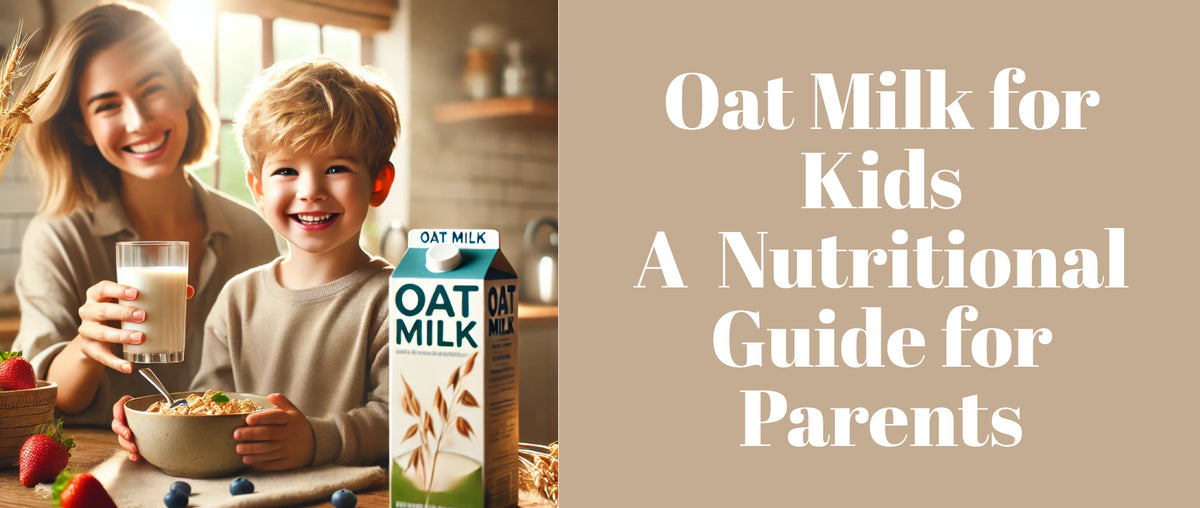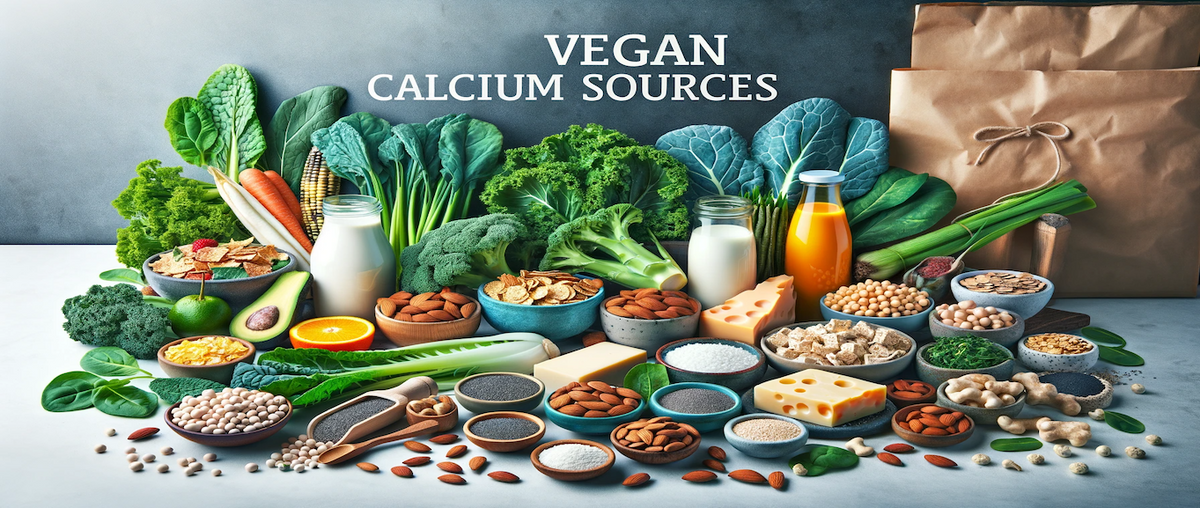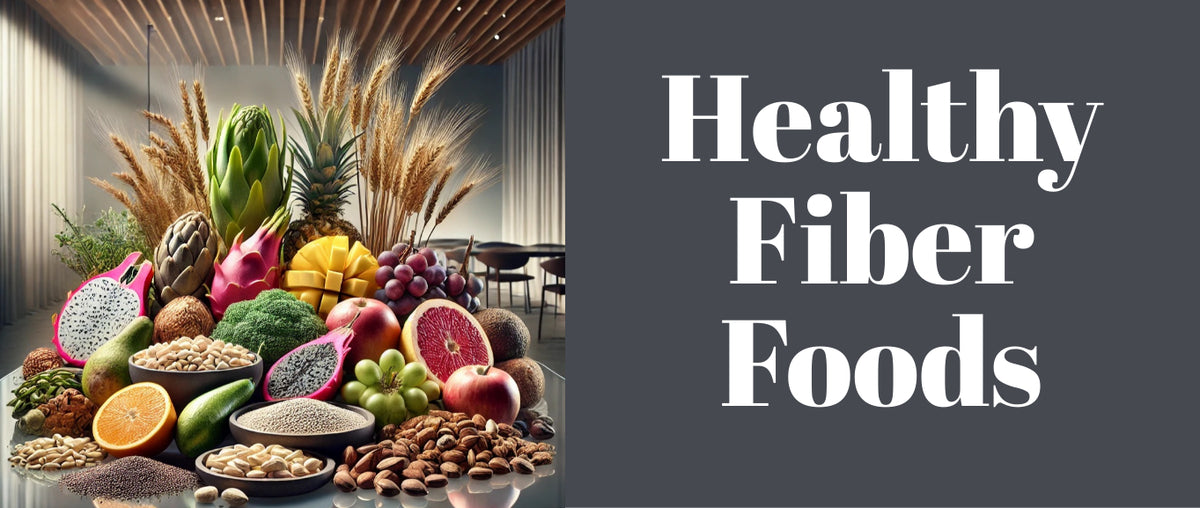Oat Milk for Kids: A Nutritional Guide for Parents
In recent years, Oat Milk has become a popular choice among parents looking for a dairy-free and plant based milk alternative for their children. With its creamy texture and mild flavor, oat milk is not only appealing to kids but also offers several nutritional benefits that make it a good option for parents to consider. Understanding the nutritional profile of oat milk and its suitability for different age groups can help parents make informed choices when selecting vegan products for their children.
Parents often find themselves exploring Vegan Cheese, vegan butter, and other plant-based alternatives like Cashew Butter and fat-free butter to cater to their family's dietary needs. When it comes to choosing milk for children, oat milk is frequently considered due to its natural sweetness and dairy-free composition. But is it truly the right choice for kids? This guide dives into the details, ensuring parents have all the information they need to make the best choice for their little ones.
Key Takeaways
- Oat milk is a plant-based, dairy-free alternative made from oats and water, suitable for lactose-intolerant and vegan children.
- It is often fortified with calcium, vitamin D, and vitamin B12, making it a good choice for bone health in growing children.
- While oat milk is naturally low in saturated fats, it's important to choose unsweetened or low-sugar versions to avoid excess sugar intake.
- Parents should consult a pediatrician before introducing oat milk as a primary milk source, especially for toddlers.
What Is Oat Milk?
Oat milk is a plant-based milk alternative derived from blending oats with water and then straining the mixture to produce a smooth, creamy liquid. Unlike traditional dairy milk, it’s completely free of lactose, making it a suitable option for those who are lactose intolerant. Additionally, oat milk is a preferred choice among families following a vegan lifestyle or those exploring plant based products such as vegan butter and plant-based cheese.
How Is Oat Milk Made?
The process of making oat milk involves:
- Blending oats with water until a smooth consistency is achieved.
- Straining the mixture to remove the oat pulp, leaving a creamy liquid behind.
- For commercial oat milk, manufacturers often add fortified nutrients like calcium, vitamin D, and B12 to enhance its nutritional profile.
This fortification makes oat milk an appealing choice for parents seeking an unprocessed milk alternative with added nutritional benefits, much like how vegan cheese can be a suitable substitute for traditional dairy-based cheeses like parmesan cheese or mozzarella cheese block.
Comparison with Other Plant-Based Milks
When compared to other plant-based milk options such as almond milk, soy milk, and coconut milk, oat milk stands out for its:
- Creamy Texture: This makes it an excellent addition to recipes that require a thicker consistency, such as smoothies or baked goods.
- Naturally Sweet Flavor: The mild sweetness of Oat Milk makes it appealing to children, reducing the need for added sugars.
- Higher Fiber Content: Unlike almond milk or coconut milk, oat milk retains a higher level of soluble fiber, which can aid in digestion for kids.

Nutritional Profile of Oat Milk
Understanding the nutritional profile of oat milk is crucial when considering it for a child's diet. Here’s a breakdown of the key nutrients typically found in a cup of fortified oat milk:
| Nutrient | Oat Milk (1 cup) | Cow's Milk (1 cup) | Notes |
|---|---|---|---|
| Calories | 120 kcal | 150 kcal | Oat milk is slightly lower in calories, making it suitable for balanced diets. |
| Protein | 3g | 8g | Lower protein content means parents may need to supplement with other protein sources. |
| Calcium | 350 mg (fortified) | 300 mg | Fortified oat milk often provides similar calcium levels to cow's milk. |
| Vitamin D | 2.5 mcg | 2.5 mcg | Essential for bone health, especially in growing children. |
| Fiber | 2g | 0g | The fiber in oat milk supports digestive health in kids. |
| Saturated Fat | 0.5g | 4.6g | Lower in saturated fats, beneficial for maintaining heart health in children. |
For families already exploring vegan options such as fat-free cheese, unsalted butter, or garlic butter, oat milk becomes a natural addition to a well-rounded diet. It provides essential vitamins and minerals that are crucial for a child's growth and development, especially if they follow a vegan or plant-based lifestyle.
Is Oat Milk Safe for Kids?
Safety is a major concern for parents considering oat milk for their kids. While oat milk can be a great addition to a child’s diet, there are several factors that parents need to keep in mind:
Age Recommendations for Oat Milk Consumption
- Toddlers (1-2 years): It’s generally recommended that oat milk should not replace breast milk or infant formula as a primary source of nutrition before the age of 2. After 1 year, it can be used as a supplement alongside a balanced diet, but not as a complete replacement for breast milk or cow's milk.
- Preschoolers (2-5 years): For children older than 2, fortified oat milk can serve as a suitable dairy substitute, especially for those with milk allergies or lactose intolerance. It pairs well with other Vegan products like plant based cheese and unsalted butter.
- Older Kids (6+ years): At this age, oat milk can be a convenient addition to their diet, whether as a base for smoothies, poured over cereal, or used in cooking. It’s particularly popular in families that often purchase mozzarella cheese online or look for the best mozzarella cheese in India.
Allergies and Intolerances
- Gluten Sensitivity: While oats are naturally gluten-free, cross-contamination during processing can be a concern. Parents should look for certified gluten-free oat milk options to ensure safety for kids with gluten intolerance.
- Lactose Intolerance: Oat milk is a popular choice for kids with lactose intolerance, offering a creamy texture similar to dairy milk without causing digestive issues.
- Nut Allergies: Since oat milk is nut-free, it’s a safer choice compared to almond milk for children with nut allergies.
Health Benefits of Oat Milk for Kids
Oat milk offers several benefits that make it an appealing choice for children, especially when compared to other plant-based milk options like soy milk or almond milk. Here’s a closer look at why oat milk might be a good addition to a child’s diet:
1. Digestive Health
One of the key advantages of oat milk is its natural fiber content. Unlike cow’s milk and most other plant-based milks, oat milk retains soluble fiber, particularly beta-glucan, which can be beneficial for kids’ digestive systems. Fiber helps:
- Regulate bowel movements and prevent constipation, which can be common in young children.
- Support the growth of healthy gut bacteria, promoting better overall digestive health.
For parents already incorporating Vegan Cheese or fat-free cheese into meals, oat milk can complement a fiber-rich diet for their children, ensuring a smoother digestion process.
2. Heart Health
Oat milk is naturally low in saturated fats, making it a heart-healthy choice for growing kids. Unlike whole milk, which contains higher levels of saturated fats that could contribute to elevated cholesterol over time, oat milk provides:
- Lower levels of unhealthy fats while retaining a creamy texture that kids enjoy.
- Beta-glucan, a type of soluble fiber that may help lower bad cholesterol (LDL) levels, reducing the risk of developing cardiovascular issues later in life.
For parents exploring plant-based options like unsalted butter or cashew butter, oat milk can be a suitable addition that aligns with a heart-conscious diet.
3. Bone Health
While oat milk is naturally lower in calcium compared to cow’s milk, most commercially available oat milk brands are fortified with calcium and vitamin D. These nutrients play a crucial role in:
- Building strong bones and teeth, which is especially important for toddlers and young children during their growth spurts.
- Supporting immune function with vitamin D, which also aids in the absorption of calcium for better bone strength.
Parents can pair fortified oat milk with meals containing plant-based cheese like mozzarella cheese block to further boost their children’s calcium intake.
Potential Downsides of Oat Milk for Children
Despite its benefits, there are a few considerations parents should keep in mind before adding oat milk to their child’s diet:
1. Lower Protein Content
One of the major differences between oat milk and cow’s milk is the protein content. Oat milk typically contains around 3 grams of protein per cup, whereas cow's milk has approximately 8 grams per cup. This can be a concern if oat milk is being used as a primary source of protein in a child's diet, as protein is essential for:
- Muscle development and tissue repair in growing children.
- Immune system support and overall healthy growth.
Parents may need to include other protein-rich foods in their child’s diet, such as beans, lentils, tofu, and even vegan cheese varieties to ensure sufficient protein intake.
2. Added Sugars in Flavored Varieties
Many store-bought oat milk options come in flavored varieties like vanilla or chocolate, which may contain added sugars. Excessive sugar intake can contribute to:
- Weight gain and tooth decay in children.
- An increased risk of developing obesity or metabolic conditions as they grow older.
To avoid these risks, parents should opt for unsweetened oat milk or carefully read nutrition labels to select options with minimal added sugars.
| Brand | Protein (per cup) | Sugar (per cup) | Fortification | Suitable For Kids? |
|---|---|---|---|---|
| Brand A Oat Milk | 3g | 0g | Calcium, Vit D, B12 | Yes, unsweetened option |
| Brand B Vanilla Oat Milk | 2g | 8g | Calcium, Vit D, B12 | Limit due to added sugar |
| Brand C Organic Oat Milk | 3g | 2g | Calcium, Iron | Yes, minimal sugar |
| Brand D Chocolate Oat Milk | 2g | 12g | Vitamin D, B12 | Occasional treat |
3. Higher Carbohydrate Content
Oat milk tends to have a higher carbohydrate content compared to almond milk or soy milk, due to the naturally occurring carbohydrates in oats. While this can provide a quick energy boost, parents should be mindful of the total carbohydrate intake if their child is already consuming other carb-heavy foods.
How to Choose the Right Oat Milk for Your Child
Selecting the best oat milk for your child involves more than just picking up the first carton you see at the store. Here are some key factors to consider:
1. Look for Fortified Options
To ensure that oat milk can effectively substitute cow’s milk, it’s crucial to select brands that are fortified with essential nutrients. Parents should look for oat milk that includes:
- Calcium: Aim for at least 20-25% of the daily recommended intake per cup.
- Vitamin D: Essential for calcium absorption and overall bone health.
- Vitamin B12: Important for brain function and energy production, especially for kids on a vegan diet.
When buying mozzarella cheese online or choosing the best mozzarella cheese for pizza, it’s also wise to consider nutrient-rich oat milk options that will complement your child’s diet.
2. Choose Unsweetened Varieties
While it can be tempting to opt for flavored oat milk varieties that kids may prefer due to their sweet taste, unsweetened options are generally the healthier choice. Benefits of unsweetened oat milk include:
- Lower sugar content, reducing the risk of tooth decay.
- More versatility in recipes, as the neutral taste can be used in both savory and sweet dishes.
3. Organic and Non-GMO Choices
For families who prioritize organic products, many brands offer organic oat milk options that are non-GMO and free from pesticides. This can be an important consideration for parents who already buy organic vegan cheese or other Unprocessed Cheese products.

Tips for Incorporating Oat Milk into Your Child’s Diet
Once you’ve selected the right oat milk for your child, there are many ways to incorporate it into their diet seamlessly:
1. Breakfast Ideas with Oat Milk
Oat milk can be a perfect addition to your child’s breakfast routine, helping them start the day with energy and essential nutrients:
- Oat Milk Smoothies: Blend oat milk with fresh fruits like bananas or berries for a nutritious breakfast smoothie.
- Overnight Oats: Combine oat milk with rolled oats, chia seeds, and fresh berries in a jar for a delicious overnight oats recipe. It’s a perfect breakfast for busy mornings.
- Oat Milk Pancakes: Use oat milk as a substitute for regular milk in pancake batter to create fluffy, dairy-free pancakes. Top with fresh fruit and a drizzle of maple syrup for extra flavor.
2. Lunch and Dinner Recipes with Oat Milk
From creamy soups to rich sauces, oat milk can be used in a variety of dishes to create dairy-free meals:
- Creamy Tomato Soup: Replace the cream in your child’s favorite tomato soup recipe with oat milk for a lighter yet creamy texture.
- Mac and Vegan Cheese: Use oat milk as a base for making a smooth and cheesy vegan cheese sauce. Add plant-based cheese like mozzarella cheese block for extra richness.
- Oat Milk Mashed Potatoes: Create creamy mashed potatoes by adding oat milk and vegan butter to boiled potatoes. It’s a perfect side dish for dinner.
3. Snacks and Desserts with Oat Milk
- Dairy-Free Hot Chocolate: Heat oat milk with a spoonful of cocoa powder and a touch of sweetener for a cozy and dairy-free hot chocolate.
- Oat Milk Ice Cream: Blend frozen bananas with oat milk and vanilla extract for a simple and healthy ice cream alternative. Add a sprinkle of fat-free butter on top for a creamy finish.
- Baked Goods: Replace regular milk with oat milk in recipes for muffins, cookies, and cakes to keep them vegan without sacrificing texture.
Choosing the Best Oat Milk Brands for Kids
When selecting oat milk for your child, some brands may stand out for their nutrition profile and taste. Here’s a quick overview of some popular options:
| Brand | Fortified Nutrients | Sugar Content (per cup) | Flavor Variants | Best For |
|---|---|---|---|---|
| Oatly | Calcium, Vitamin D, B12 | 0g (unsweetened) | Original, Chocolate | Daily drinking, smoothies |
| Califia Farms | Calcium, Vitamin D, Omega-3 | 3g | Unsweetened, Vanilla | Cereal, baking, cooking |
| Elmhurst | Calcium, Vitamin E, B12 | 5g | Barista Edition | Coffee, creamy soups, hot cocoa |
| Minor Figures | Vitamin D, B12 | 2g | Original, Barista | Creamy drinks, frothing for lattes |
Choosing the right brand can make a big difference in ensuring that your child gets the nutrients they need while enjoying the rich, creamy taste of oat milk. Parents who often buy mozzarella cheese or look for the best mozzarella cheese in India can consider pairing these products with nutrient-dense Oat Milk to create balanced, delicious meals for their kids.
Conclusion
Oat milk has become a popular choice for families looking to adopt a dairy-free or vegan lifestyle, and with good reason. Its creamy texture, naturally sweet flavor, and fortified nutrients make it an excellent alternative to cow’s milk, especially for kids with lactose intolerance or milk allergies. However, like any plant-based milk, it’s important to consider your child’s overall nutritional needs and ensure they are getting adequate protein and other key nutrients from various sources.
For parents who already enjoy Vegan products like vegan butter, fat-free cheese, and plant-based cheese, oat milk is a wonderful addition to meals, whether as a drink or as an ingredient in cooking and baking. It provides a versatile way to support your child’s growth while aligning with plant based eating.
By selecting fortified, unsweetened oat milk and pairing it with a balanced diet, parents can ensure that their kids get the best of both worlds—great taste and good nutrition. Remember, before making any major changes to your child’s diet, it’s always a good idea to consult with a pediatrician to ensure it’s the right choice for your little one’s health.
Do you enjoy vegan food? We have a list of vegan restaurants in India to help you find delicious options in your area!










